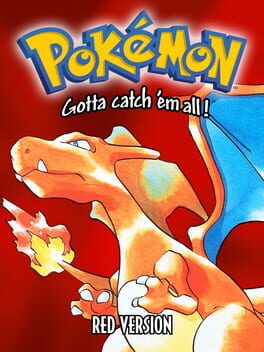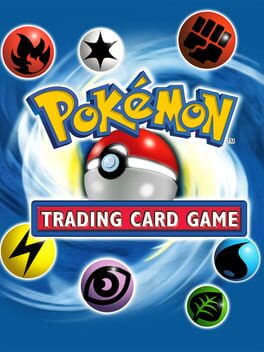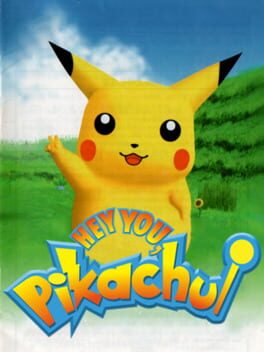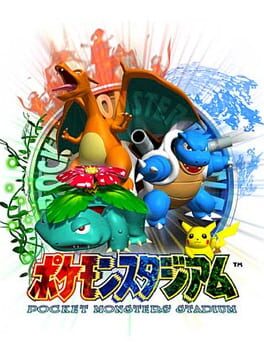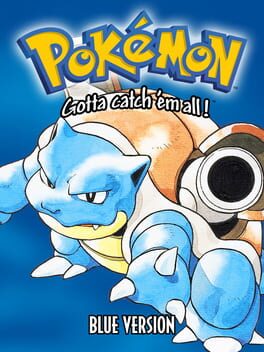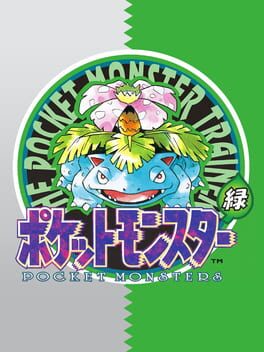

Pokémon Red, along with Pokémon Green, are the first video games in the Pokémon series of games. They are the first paired versions of Generation I. Developed over the course of several years, Red and Green established several standards for later Pokémon games and sequels. They take place in the Kanto region, with the player having to collect eight Gym Badges to become the Pokémon Champion while also completing the Pokédex by collecting all 151 Pokémon.
Also in series
Reviews View More
This score reflects the whole first generation.
There are few franchises that have changed the world. Pokémon is one of them. It may be easy to look at the nuts and bolts of the first generation today, with hindsight and in a vacuum. Videogames, however, are less of a linear technical field than an interactive artform. Pokémon is part of the cultural zeitgeist of the last four generations because of the impact the first generation caused.
The feeling of wanderlust and adventure is something that a human constantly seeks in life. Pokémon awakened and fed this in the hearts of millions of people worldwide.
The premise of the series, in it's time, was groundbreaking: be the protagonist of the perfect adventure, with fantastical friendly monsters in a world that is recognizable and parallel to our own.
The execution may not have been technically perfect, but it was artistically perfect. The design of the characters, the monsters and the world was created expertly to cater to young children but alto to spark the inner child in every single one who got into contact with the world of Pokémon.
The gameplay loop, while a little bit dated, could hook any who tried it in a heartbeat, and the concept of growing together with you monster partners was innovative and addicting. The arstyle was cartoonish enough that any holes left by the low fidelity of GameBoy graphics could be promptly filled by the player imagination. However, the sprite art was phenomenal and is still cherished my a large part of the playerbase, who eschew the 3D transition post 7th gen.
Yes, there are some bugs. Who gives a shit? At the time, pre-internet, bugs were even part of the mystique of games, as if they were a supernatural secret only known to a select few. The experience was almost never impacted by them and it is not only unfair, but extremely shortsighted to dim the legacy of these games because of niche glitches.
And what a legacy. Not even talking about the personal mark the first generation left in the ones who had the privilege to experience them, the systems Pokémon created are part of the foundations of modern jRPGs and the template of any monster collecting game - from Pokémon ripoffs to cardgame roguelikes, to games with elemental tables to even modern collecting gacha games.
The soundtrack is immaculate and the sound design is impeccable. There are few games with tunes as recognizable and timeless as Pokémon. There are few thing that scream "start of the adventure" as the Route 1 theme.
There is no nostalgia tint - the game could have issues, but they are so minuscule in face of the importance of the final product and the monumentality of the fun it brought, they are easily ignorable.
There are few franchises that have changed the world. Pokémon is one of them. It may be easy to look at the nuts and bolts of the first generation today, with hindsight and in a vacuum. Videogames, however, are less of a linear technical field than an interactive artform. Pokémon is part of the cultural zeitgeist of the last four generations because of the impact the first generation caused.
The feeling of wanderlust and adventure is something that a human constantly seeks in life. Pokémon awakened and fed this in the hearts of millions of people worldwide.
The premise of the series, in it's time, was groundbreaking: be the protagonist of the perfect adventure, with fantastical friendly monsters in a world that is recognizable and parallel to our own.
The execution may not have been technically perfect, but it was artistically perfect. The design of the characters, the monsters and the world was created expertly to cater to young children but alto to spark the inner child in every single one who got into contact with the world of Pokémon.
The gameplay loop, while a little bit dated, could hook any who tried it in a heartbeat, and the concept of growing together with you monster partners was innovative and addicting. The arstyle was cartoonish enough that any holes left by the low fidelity of GameBoy graphics could be promptly filled by the player imagination. However, the sprite art was phenomenal and is still cherished my a large part of the playerbase, who eschew the 3D transition post 7th gen.
Yes, there are some bugs. Who gives a shit? At the time, pre-internet, bugs were even part of the mystique of games, as if they were a supernatural secret only known to a select few. The experience was almost never impacted by them and it is not only unfair, but extremely shortsighted to dim the legacy of these games because of niche glitches.
And what a legacy. Not even talking about the personal mark the first generation left in the ones who had the privilege to experience them, the systems Pokémon created are part of the foundations of modern jRPGs and the template of any monster collecting game - from Pokémon ripoffs to cardgame roguelikes, to games with elemental tables to even modern collecting gacha games.
The soundtrack is immaculate and the sound design is impeccable. There are few games with tunes as recognizable and timeless as Pokémon. There are few thing that scream "start of the adventure" as the Route 1 theme.
There is no nostalgia tint - the game could have issues, but they are so minuscule in face of the importance of the final product and the monumentality of the fun it brought, they are easily ignorable.
This was the first Pokémon game I actually beat, and I really really enjoyed it! The only issue I had was Victory Road being more annoying than challenging. Why do monsters pop up like every 3 steps that's stupid. Otherwise incredibly fun and one of the most ambitious games of its time.
(I played this on an emulator and fast-forward is a lifesaver absolutely use it!!)
(I played this on an emulator and fast-forward is a lifesaver absolutely use it!!)
One of the defining games of my childhood. The Pokemon franchise has been improved upon by the subsequent games, but the original Gameboy game is the one that took the world by storm. Capturing, collecting, and battling with all the different creatures who learn different moves gives variety to what would be a pretty basic JRPG otherwise. A fantastic game, even if it's a little dated by today's standards.
What a nostalgia trip - I played this when it first came out all those years ago and it still has a charm to me.
The graphics are obviously very dated and some of the Pokémon designs look like nightmare fuel.
The music is still memorable and going through it using Pokémon I haven’t really used before kept it a little fresh. It’s surprising how much I still remembered.
The graphics are obviously very dated and some of the Pokémon designs look like nightmare fuel.
The music is still memorable and going through it using Pokémon I haven’t really used before kept it a little fresh. It’s surprising how much I still remembered.
I recently (2024) played this for the first time having only played later games in the franchise, wondering how well it would hold up. My takeaways mostly boiled down to it being a question of framing.
If you view this game from the perspective of newer Pokemon games, this one is almost stiflingly limited. Clunky design limitations abound in pretty much every direction, the overall game balance is dubious at best, and pretty much every bit of quality-of-life from the later games is missing. In that sense, the game is very rough.
On the other hand, if you view this game from the perspective of it being an experimental RPG for Game Boy developed for a 1996 release, it is both wildly ambitious and incredibly effective. 151 unique monster designs with unique designs, movesets and stats? A complicated web of elemental type strengths and weaknesses? And it's got ways in which you can help your friend out by trading, or do strategic PvP battling against them? In that sense, the game is incredibly forward-thinking and impressive.
In the end I enjoyed my playthrough, and I think the game mostly holds up. But it is, nevertheless, a bit hard to go back this far if you're used to what followed.
If you view this game from the perspective of newer Pokemon games, this one is almost stiflingly limited. Clunky design limitations abound in pretty much every direction, the overall game balance is dubious at best, and pretty much every bit of quality-of-life from the later games is missing. In that sense, the game is very rough.
On the other hand, if you view this game from the perspective of it being an experimental RPG for Game Boy developed for a 1996 release, it is both wildly ambitious and incredibly effective. 151 unique monster designs with unique designs, movesets and stats? A complicated web of elemental type strengths and weaknesses? And it's got ways in which you can help your friend out by trading, or do strategic PvP battling against them? In that sense, the game is incredibly forward-thinking and impressive.
In the end I enjoyed my playthrough, and I think the game mostly holds up. But it is, nevertheless, a bit hard to go back this far if you're used to what followed.
